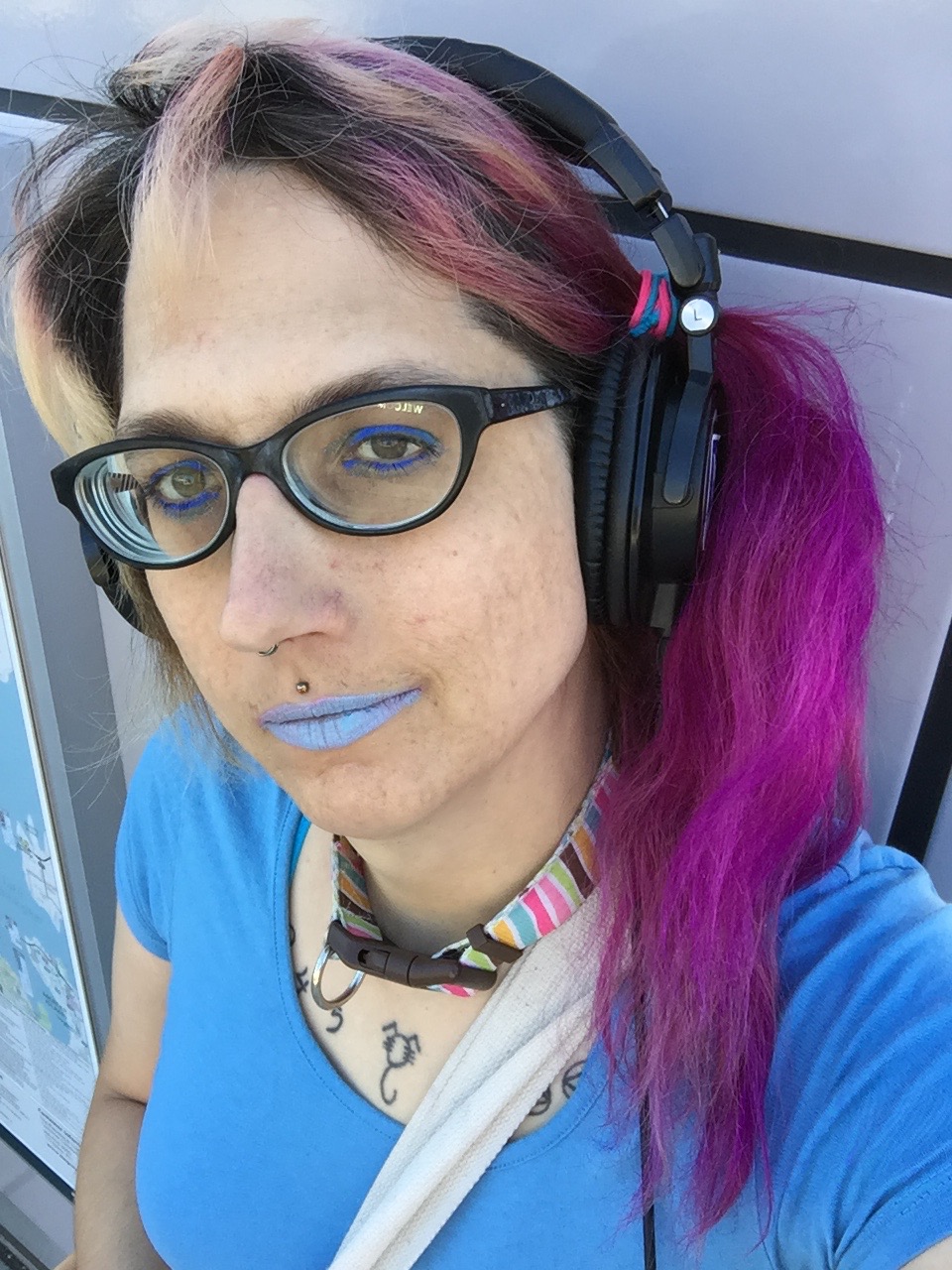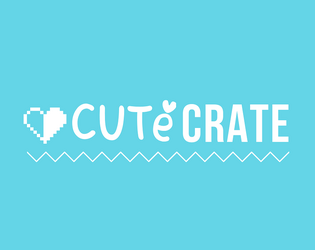Paige Ashlynn

- Role: Coding cutie
- Location: Seattle, Washington
Queerly Represent Me spoke with coding cutie, Paige Ashlynn, about their work on 2064: Read Only Memories, LongStory, and more!
QRM: Can you tell us a little bit about who you are and what you do in the games industry?
Paige: I'm a professional programmer, amateur designer, and former business lead.
QRM: How long have you been involved in the game industry, and what projects have you worked on? What are you working on currently?
Paige: I've been developing games professionally for five years and have worked on many projects. Among the most well-known of these are 2064: Read Only Memories and LongStory. A smaller game that is a personal favorite of mine is CuteCrate!
QRM: What inspired you to get started in the games industry?
Paige: So many things! First, I believe that representation of marginalized people in media is important; second, games was the first place I met fellow coders with tattoos and colored hair!
QRM: In what ways do you feel your experiences as a queer person manifest in the games you work on, and influence the work you do?
Paige: In my case the influences are manifold, because I specifically choose to work with other queer developers on queer games. This is my ongoing career goal. As an example, one way in which my experiences as a queer person play out in my development is that I already developed an appreciation for queer art in music, film, comics, and fiction, so it's easier for me to recognize the value in queer art that my peers are creating in games – things that might puzzle or intimidate someone who's only been exposed to mainstream games. Similarly, I'm able to focus on elements that interest me most in games, whether gameplay (non-violent progression, exploration, creative play) or narrative (transness, poly, kink) without fretting about whether these topics are commercially viable or easily consumable.
QRM: Do you have a favourite queer character—in games or media more generally? If so, what is it about them that makes them your favourite?
Question asked by @kamienw.
Paige: I find Oli and Starfucker from 2064: Read Only Memories to be surprisingly endearing! The way their different personality types ricochet off each other make them very cute together! 😂
QRM: Have you ever encountered roadblocks in trying to include queer characters in games? What do you think is preventing greater diversity within games?
Question asked by @dustinalex91.
Paige: Yes, definitely. Before I focused my career strictly on queer games I worked on several other independent games, and there was always pushback against anything queer. The reasons for this are pretty well documented at this point, so I'm not going to go into them, but suffice it to say that the majority of game developers come from a very small slice of the overall population – and not a very queer-friendly slice.

Paige: Why do you think it is important that queer audiences are able to see themselves represented in the games they play, and in the developers who make the games they see? What can we do to improve the industry for queer audiences and devs?
Paige: Growing up in the '90s in a rural, reactionary household, the first time I ever saw someone like myself in media was in a video game. Seeing yourself reflected in the world around you is so important on so many levels, especially for those of us facing extra challenges in our lives. Representation helps all queers, and especially young or isolated queers, know that they are normal, healthy, and valid human beings whose lives and feelings matter.
QRM: Have you ever mentored somebody in your role in games, or been mentored? If so, what made these experiences worthwhile for you?
Question asked by @pepelanova.
Paige: I have not yet mentored anyone but I did have two mentors of my own. Both of these were women more established than myself and both experiences were extremely beneficial for me. They offered me insights not just into the development process but – more importantly – into how to grow and manage my career. Having a mentor, and especially a mentor who is also a marginalized person, is incredibly useful when you need a reality check or advice on how to grow as a creator or a professional.
QRM: In what ways can non-queer folk increase and support queer diversity present within games, as well as in the industry more broadly? How can we all work to support intersectional approaches to diversity, and why is this important?
Paige: Honestly, the single most important thing people can do is support creators. This includes buying big games that feature positive queer content, but most important is supporting small time creators as 90% of queer creators in games right now are working on the fringes of the industry. Donate to a patreon, back a Kickstarter, or best of all – buy a game made by a queer person!
*
You can find Paige on their website.
You might also like to check out some of the games they’ve worked on, including LongStory, 2064: Read Only Memories, Lightlike, and CuteCrate!
